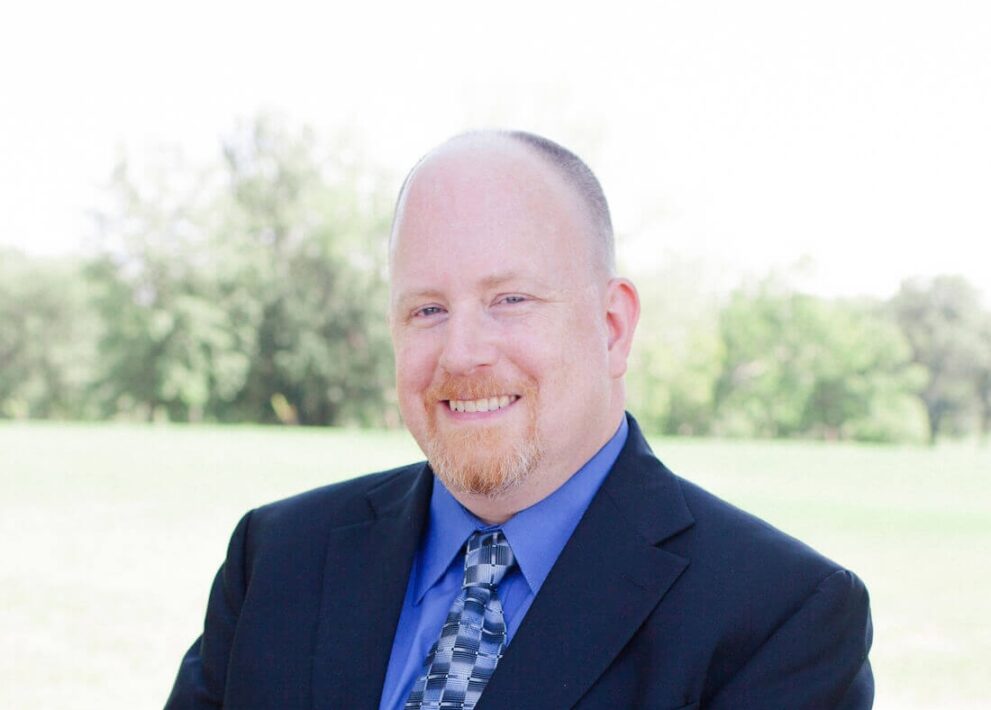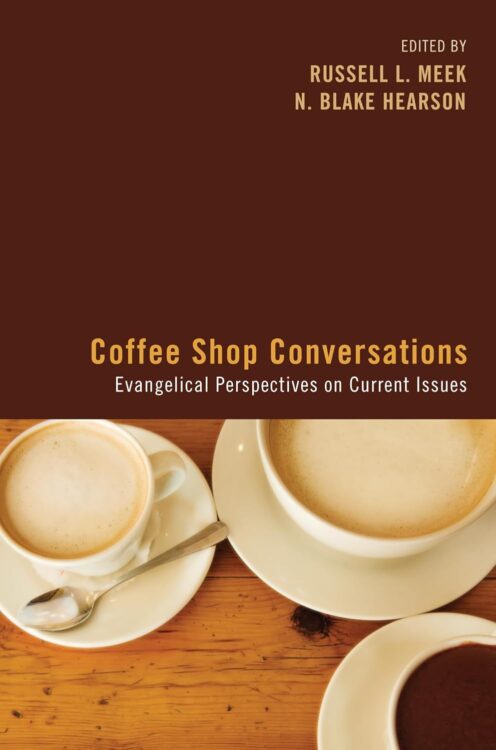
N. Blake Hearson
Professor of Old Testament and Hebrew, Book Review Editor for the Midwestern Journal of Theology
at a glance
Biography
Dr. N. Blake Hearson is professor of Old Testament and Hebrew at Midwestern Theological Seminary in Kansas City, Missouri. He is currently the Book Review Editor of the Midwestern Journal of Theology and served as the managing editor in the past. He has served as an associate pastor of small groups at Crossroads Community Church in Cincinnati, Ohio and been an Elder at two church plants in the Kansas City area. He earned his doctorate and a Master of Philosophy degree in Hebraic and Cognate Studies from Hebrew Union College in Cincinnati, Ohio. He also holds a Master of Divinity degree from Gordon-Conwell Theological Seminary in South Hamilton, Massachusetts and the Master and Bachelor of Arts degrees from Wheaton College, in Wheaton, Illinois.
Hearson is a member of the faculty at Columbia Evangelical Seminary and has taught community courses at Hebrew Union College-Jewish Institute of Religion. He has done special lectures on Sacred Space and the Dead Sea Scrolls and does occasional guest speaking at churches and conferences. He is co-editor of and contributor to the book Coffee Shop Conversations: Evangelical Perspectives on Current Issues. He has published articles and reviews, presented papers, and contributed to the Baker Illustrated Bible Dictionary. He is the Editor-in-Chief of the Old Testament for the Modern English Version Bible.
He is a member of the Society of Biblical Literature, the Evangelical Theological Society, the National Association of Professors of Hebrew, and the Institute for Biblical Research. His research interests include Old Testament Theology, Early Rabbinic Interpretation, Sacred Space in the Bible, the prophetic books, and Ecclesiastes.
He and his wife, Jennifer, have two daughters, Emma and Claire. They live in Kansas City and are members at Northland Baptist Church.
Education
Master and Bachelor of Arts degrees from Wheaton College
Master of Divinity degree from Gordon-Conwell Theological Seminary
Doctorate and a Master of Philosophy degree in Hebraic and Cognate Studies from Hebrew Union College
Faculty Q&A
For the church is a phrase that naturally fits with the mission of a seminary. As a professor and scholar, it is easy to go deep into minute details of biblical languages and content and theological issues. The phrase “for the church” helps bring the focus back to why students are in a seminary program. They are training to be ministers and to help people with daily struggles by explaining and teaching the Word of God clearly and straightforwardly. I am not leading a classroom of students for my sake. I am not there to show the students impressive scholarship. I am helping them prepare to serve the church. At the core of this task is helping students understand the Bible, and in my case the Old Testament. My own calling is to make the Old Testament and its connection to the New Testament easier to understand. Where I succeed in my efforts serves the church by enabling ministers to do the same in their ministries. Without a fundamental understanding of God’s Word, and the Good News it brings to the world, the church will lose its very purpose.
I love teaching at MBTS for one main reason: the students. The privilege of being able to teach students is humbling. Unlike a more secular environment, I have in my classes men and women who have taken a path of self-sacrifice in order to grow in their love and knowledge of God and take what they glean to others. This is a rare blessing. Moreover, I have learned so much from my students over the years. Rabbi Chanina said, “I have learned much from my teachers, more from my colleagues and most from students” (b. Talmud, Taanis 7a) When you are in a community of faith, growth is always a communal event. I have gained so much from my interaction with students at MBTS. This is a blessing beyond words.
Their perception of what matters most and their heart to put that into practice. In this day and age, education is a self-sacrificial endeavor. This is especially true for students who are going into some form of ministry. Ministry training involves time and money that doesn’t usually translate into a high-paying job on the other side of that education. It also involves hard work. And yet, students continue to come and make that sacrifice because they love God and they love serving His people. They know that now, more than ever, the culture will be resistant to the message they bring. Still students come to learn so that they can love God’s people. This prevalent attitude among students will serve the church well.


